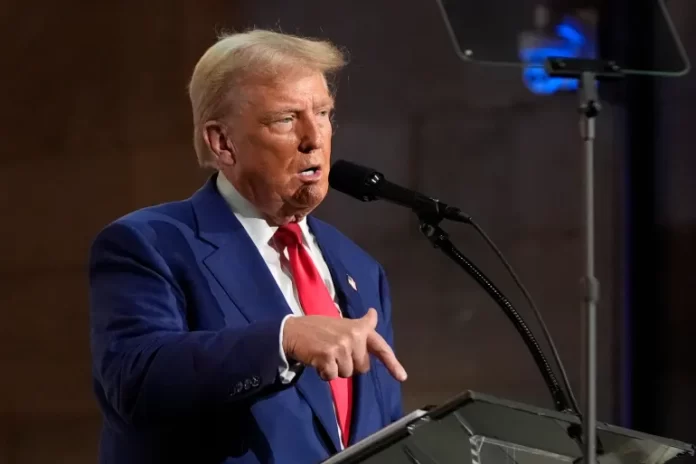The United States’ recent presidential election has captured global attention, with former President Donald Trump of the Republican Party defeating the incumbent Vice President Kamala Harris.
This outcome has prompted discussions on the lessons Nigeria can draw from the U.S. electoral process. Various Nigerian analysts, including political leaders, journalists, and academics, have weighed in with their views on what Nigeria could learn from the election.
1. Organize Elections Based on Our Issues – Austin Onuoha, Public Analyst, Abuja
Austin Onuoha, a public analyst, emphasizes that Nigeria must organize its elections according to local issues, not merely copying the U.S. approach. He argues that Nigeria and the U.S. are different in context, culture, and political landscape. “We must organize our elections based on our issues, context, and personalities. We cannot compare apples to oranges,” he said, stressing that the U.S. electoral system’s reliance on the Electoral College differs greatly from Nigeria’s voting system. For him, understanding the local context is key to any meaningful electoral reform in Nigeria.
2. Transparent Electoral Process – Andy Nkemnaeme, Conflict Management Specialist, Makurdi
Andy Nkemnaeme points out the strength of the U.S. electoral institutions, especially their transparency. He contrasts this with Nigeria’s system, where electoral integrity is often questioned. He observes that despite the heated nature of the U.S. election, including the spread of misinformation and threats against candidates, Americans were able to quickly move past these challenges and respect the democratic outcome. Nkemnaeme argues that Nigeria should learn from the U.S. in maintaining unbiased and transparent electoral institutions, free from violence and manipulation.
3. The Importance of Conceding Defeat – Sunny Zorvah, Journalist, Port Harcourt
Journalist Sunny Zorvah highlights the critical role of conceding defeat in maintaining democratic integrity. He points to the actions of former Nigerian President Goodluck Jonathan as an example of political maturity. “Jonathan’s decision to concede without resorting to violence set an example,” Zorvah noted. He stresses that Nigerians should emulate this model, accepting the results of free and fair elections without wasting resources on protracted legal battles.
4. Prioritizing National Unity – Obinna Ebogidi, Peace Crusader, Port Harcourt
Peace crusader Obinna Ebogidi suggests that political leaders in Nigeria must prioritize national unity over political victories. He draws parallels between the U.S. and Nigeria’s electoral systems, particularly in how both countries handle electoral disputes. Ebogidi commends the respect shown by both Donald Trump and Kamala Harris for the democratic process, despite the intense polarization in U.S. politics. He argues that building trust in Nigeria’s electoral system and ensuring peaceful transitions of power are vital for future political stability.
5. Ensuring Impartial and Effective Institutions – Emmanuel Ebong, Graphic Designer, Kaduna
Emmanuel Ebong stresses the importance of constitutional reforms and impartial institutions. He notes that the U.S. system of checks and balances has helped maintain democratic stability, and Nigeria should seek to emulate this. According to Ebong, the lack of operational budgets, administrative structures, and accountability in many Nigerian political organizations is a significant barrier to democratic progress. He suggests that Nigeria needs to strengthen its institutions and educate its citizens to participate more actively in the democratic process.
6. Returning Power to the People – Rev Emmanuel Olorunmagba, Cleric, Kaduna
Rev. Emmanuel Olorunmagba draws a stark contrast between the U.S. and African political landscapes. He sees Trump’s victory as proof that democracy, when allowed to thrive, empowers citizens. He critiques African nations, particularly Nigeria, for allowing “strongmen” and “godfathers” to control the electoral process rather than the people’s will. Olorunmagba argues that for democracy to work in Nigeria, the power to elect political office holders must return to the voting masses.
7. Working Towards a Transparent System – Brata Igiran, Banker, Yenagoa
Brata Igiran sees the U.S. election as a testament to the importance of a transparent electoral system. The efficiency and swift announcement of results, along with the peaceful acceptance of the outcome, set a standard for electoral credibility. Igiran believes Nigeria should adopt systems that ensure transparent elections, including potentially incorporating early voting and enabling Nigerians in the diaspora to vote. He also highlights the need for greater participation by all sectors of Nigerian society, echoing calls for an electoral system that genuinely reflects the will of the people.
8. Accepting Defeat – Abel Daniel, Journalist, Lafia
Abel Daniel emphasizes that politicians should accept defeat gracefully, citing Kamala Harris’s quick concession as an example of political maturity. He notes the professionalism of U.S. electoral officials, which contrasts sharply with Nigeria’s often chaotic elections. Daniel suggests that Nigerian politicians, election management bodies, and electoral commissions must learn from the U.S. system to ensure smooth, fair, and transparent elections in the future.
9. Respect for the People’s Choice – Isaac Ukpoju, NUJ Leader, Lafia
Isaac Ukpoju calls for Nigerian elections to reflect the people’s true will. He believes that when politicians understand that their power comes from the people, they will serve with greater integrity and accountability. Drawing from the U.S. election, Ukpoju advocates for greater transparency, inclusive participation, and the peaceful transition of power in Nigeria, encouraging the country to uphold the sanctity of democratic processes.
Conclusion: Embracing the Democratic Process
The 2024 U.S. presidential election offers numerous lessons for Nigeria, from transparent electoral processes and the peaceful concession of defeat to strengthening institutions and returning power to the people. By adopting some of the strategies employed in the U.S., Nigeria can work towards a more inclusive, accountable, and transparent electoral system, fostering a democracy that truly reflects the will of its people.



